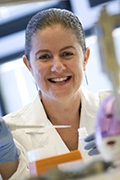
Karen Moritz
PhD, Professor, Research Fellow, School of Biomedical Sciences and Child Health Research Centre, the University of Queensland, Brisbane, Australia
Long Term Chronic Disease Outcomes Following Prenatal Alcohol Exposure
Professor Karen Moritz is a Senior Research Fellow in the School of Biomedical Sciences and Director of the Child Health Research Centre at the University of Queensland. The aim of her work is to understand how prenatal perturbations contribute to an increased risk of developing cardiovascular, renal and metabolic disease in adulthood. Over the last 5-7 years, her research has focused on determining how prenatal alcohol can result in “developmental programming” of adult disease. Her research has identified critical windows of susceptibility to alcohol including the period prior to implantation. In addition, her work has identified the placenta as playing a key role in the sex specific outcomes seen following maternal perturbations.

Philip A. May
PhD, Research Professor, Gillings School of Global Public Health, University of North Carolina at Chapel Hill-Nutrition Research Institute, Kannapolis, NC, USA
The Prevalence and Epidemiologic Characteristics of FASD in General Populations of the United States: Final CoFASP Results
Dr. May is a Research Professor at the University of North Carolina at Chapel Hill in the Gillings School of Global Public Health where works from the UNC Nutrition Research Institute. He also is Professor Emeritus from the University of New Mexico and continues to collaborate with the Center on Alcoholism, Substance Abuse and Addictions. Additionally, Dr. May is an Adjunct Professor of Pediatrics with the Sanford School of Medicine of The University of South Dakota, and an Extraordinary Professor on the Faculty of Health Sciences of the University of Stellenbosch in South Africa. His current research is primarily on the prevalence and epidemiological characteristics of fetal alcohol spectrum disorders (FASD). With an exceptional multidisciplinary clinical and epidemiological research team from several universities across the U.S. and several other countries, Dr. May has been, and is currently, the principle investigator of studies funded by the U.S. National Institutes of Health (NIH), the National Institute on Alcohol Abuse and Alcoholism (NIAAA), to research the characteristics of FASD in the general populations of the United States and South Africa. He and his colleagues are focused directly on refining the diagnostic criteria for the FASD spectrum, maternal risk and protective factors for FASD, defining specific neurobehavioral characteristics of children with FASD, and efficacy studies of FASD prevention.

Kenneth R. Warren
PhD, Senior Advisor for Operations, FASD and Science, National Institute on Alcohol Abuse and Alcoholism, National Institutes of Health, Bethesda, MD, USA
The Prevalence and Epidemiologic Characteristics of FASD in General Populations of the United States: Final CoFASP Results
Kenneth R. Warren, Ph.D., is currently Senior Advisor to the National Institute on Alcohol Abuse and Alcoholism (NIAAA). A long term scientist and administration at NIAAA, he served as the Institute Deputy Director from February 2008 to November 2015. Dr. Warren also served as the Acting Director of NIAAA from November 1, 2008 to January 28, 2014.
Dr. Warren joined NIAAA in 1976 as a staff member of the then Division of Research. He later became chief of the Biomedical Research Branch, and then Deputy Director of the Division of Extramural Research. From 1984 to 2005 he directed the Office of Scientific Affairs, whose responsibilities included peer review, grants management, committee management, scientific communications, and activities of the NIAAA National Advisory Council and Extramural Advisory Board. Between 2002 to 2007, Dr. Warren served as Associate Director for Basic Research Director of the institute’s Office of Science Policy and Communications.
A graduate of the City College of New York, Dr. Warren earned his doctorate degree in Biochemistry from Michigan State University in 1970. He subsequently undertook postdoctoral positions at the University of California, Los Angeles and at University of Michigan Mental Health Research Institute before joining the Federal government in a research position at the Walter Reed Army Institute of Research in 1974.
Dr. Warren has maintained an active interest in all areas of alcohol and health and in past years often served as the editor of the triennial Reports to Congress on Alcohol and Health. He has been particularly active in research on the effects of alcohol use during pregnancy, including fetal alcohol syndrome (FAS) and fetal alcohol spectrum disorders (FASD). Dr. Warren initiated NIAAA’s research program on FAS over 30 years ago. He currently chairs the government-wide Interagency Coordinating Committee on FAS.
Dr. Warren has received numerous honors, including a superior service award from the Public Health Service in 1982 for his work in development of the first Surgeon General’s Advisory on FAS. In 1994, Dr. Warren received the Seixas Award from the Research Society on Alcoholism (RSA). In 2002, he received the Henry Rosett Award from the Fetal Alcohol Spectrum Disorders Study Group (FASDSG) of RSA. In 2007, the National Organization on Fetal Alcohol Syndrome (NOFAS) honored Dr. Warren by placing his name into their Tom and Linda Daschle FASD Hall of Fame, followed by the receipt of the NOFAS Excellence Award in 2008. In 2014, Dr. Warren also received Lifetime Achievement Awards from both RSA and FASDSG, an International Service Recognition Award from the International Society for Biomedical Research on Alcoholism (ISBRA), and the NIH Director’s Award for outstanding service as Acting Director of NIAAA.

Christina D. Chambers
PhD, MPH, Professor, Department of Pediatrics and Family Medicine and Public Health, School of Medicine; Co-Director, Center for Better Beginnings; University of California San Diego, La Jolla, CA, USA
The Prevalence and Epidemiologic Characteristics of FASD in General Populations of the United States: Final CoFASP Results
Dr. Christina D. Chambers is co-director of the Center for Better Beginnings and is a professor in the Departments of Pediatrics and Family Medicine and Public Health in the School of Medicine at the University of California, San Diego. She is the program director of MotherToBaby California, a service providing evidence-based information on exposures during pregnancy and lactation for women and healthcare providers, and is director of the UCSD CTRI Center for Life Course Research.
As a perinatal epidemiologist and teratologist, Dr. Chambers’ research focuses on environmental causes of adverse pregnancy outcomes and childhood disabilities. She is the PI of several longitudinal cohort studies that aim to address prevention of fetal alcohol spectrum disorders (FASDs) and ameliorative interventions for affected individuals. These cohorts are part of a multidisciplinary NIH-funded consortium and include a study in Ukraine that has been ongoing for over 10 years and a study that involves establishing the prevalence of FASD in the U.S. Additionally, Dr. Chambers helped to establish the Institute for Fetal Alcohol Spectrum Disorders Discovery, housed in the Division of Dysmorphology and Teratology at UCSD, which includes a parent support group and a community education component. In addition to her FASD research, Dr. Chambers leads a number of U.S. and Canada-wide pregnancy cohort studies that address outcomes among women with autoimmune diseases who use various treatments for their conditions.

Edward Riley
PhD; Distinguished Research Professor, SDSU Foundation and Distinguished Professor Emeritus, San Diego State University, San Diego, CA, USA
The Collaborative Initiative on FASD: New Findings on Screening
Edward Riley (Distinguished Professor). Has authored close to 300 papers, primarily on FASD. Served as Chair of the U.S. National Task Force on FAS/FAE and as a member of the U.S. NIAAA Council. He is a Past-President of the Research Society on Alcohol, the FASD Study Group, and the International Society for Biomedical Research on Alcoholism. Has received the RSA Distinguished Researcher Award, the NOFAS Research Award, and the Seixas Award. He currently directs the CIFASD.
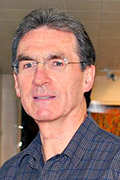
Peter Hammond
PhD, Senior Fellow in Medical Imaging, Big Data Institute and Nuffield Department of Obstetrics and Gynaecology, University of Oxford, Oxford, UK
Screening the Face for the Effects of Prenatal Alcohol Exposure
Peter Hammond has been involved with facial analysis for 18 years and with FASD for about 6 years. With many collaborators, his lab has developed techniques and associated computer software for analysing face shape differences arising from genetic anomaly and teratogenic exposure. Work on fetal alcohol spectrum disorders has been through collaborations within the CIFASD consortium. Recently, an important focus has been the deployment of face screening software to the FASD clinical setting.

Jeffery Wozniak
PhD, Associate Professor, Pediatric Neuropsychologist, Fetal Alcohol Spectrum Disorders Research Program, University of Minnesota, Minneapolis, MN, USA
Brain Imaging and Connectivity, An Adjunct to Screening
Dr. Wozniak, an Associate Professor and a Pediatric Neuropsychologist, is the director of the University of Minnesota’s Fetal Alcohol Spectrum Disorders research program. He works clinically with children and adolescents with a range of neurodevelopmental disorders. For the past 10 years, he has conducted research on FASD including MRI studies examining the neural correlates of FASD as well as treatment studies testing nutritional interventions in FASD. Dr. Wozniak oversees one of 4 clinical sites in the Collaborative Initiative on Fetal Alcohol Spectrum Disorders (CIFASD).

Julie Kable
Assistant Director, Emory Neurodevelopmental Exposure Clinic, Emory University School of Medicine, Atlanta, Georgia, USA
The Use of Functional Near-Infared Spectroscopy to Differentiate Alcohol-Related Neurodevelopmental Impairment During a Task Eliciting Emotional Frustration
Dr. Kable has over 20 years of experience in providing clinical care and conducting research related to FASD. She is the Assistant Director of the Emory Neurodevelopmental Exposure Clinic which provides diagnostic and habilitative care services for individuals with FASD and their families. She has been involved in several collaborative studies related to prevention and identification and has assisted with the development of innovative interventions, focusing on improving math skills, self-regulation and adaptive living skills.

Sarah Mattson
Licensed Clinical Psychologist, San Diego State University, San Diego, California, USA
Using Decision Tree to Identify Indiviuals Affected by Prenatal Alcohol Exposure
Dr. Mattson is a licensed clinical psychologist with expertise in neuropsychology. She has been conducting research on the effects of prenatal alcohol exposure on brain and cognition for over 20 years. Dr. Mattson’s primary interests are in issues surrounding the sensitivity and specificity of diagnostic measures as used to accurately identify individuals affected by prenatal alcohol exposure.

Rajesh Miranda
PhD, Professor, Research Fellow, School of Biomedical Sciences and Child Health Research Centre, University of Queensland, Brisbane, Australia
miRNA Biomarkers for Fetal Alcohol Exposure in Pregnant Women
Rajesh Miranda is a Professor of Neuroscience at Texas A&M Health Science Center. His research for the past 15 years has focused on the molecular and cellular mechanisms underlying brain effects due to prenatal alcohol exposure. Recently, his research has focused on developing strategies for the early diagnosis of FASD. He serves on the FASD prevention collaborative at the Texas PHS Office for the prevention of developmental disabilities (TOPDD).
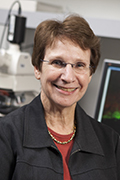
Joanne Weinberg
PhD, Professor and Distinguished University Scholar, Emerita, Department of Cellular & Physiological Sciences, University of British Columbia, Vancouver, BC, Canada
Immune Biomarkers of Prenatal Alcohol Exposure: How These Relate to Screening
Dr. Joanne Weinberg is a Professor and Distinguished University Scholar, Emerita, in the Department of Cellular & Physiological Sciences at the University of British Columbia Faculty of Medicine. She has associate appointments in the Department of Psychology and the Child and Family Research Institute at Children’s Hospital. The research in Dr. Weinberg’s laboratory utilizes animal models to investigate the effects of prenatal exposure to alcohol and prenatal/early life stress on brain and biological development, with a particular focus on the stress and immune systems, and later life vulnerability to diseases or disorders. Collaborative studies are translating this research to clinical cohorts of women and children.
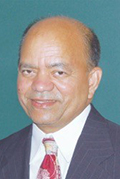
Dipak Sarkar
PhD, DPhil, Board of Governors Professor, Director, Rutgers Endocrinology Program; Distinguished Professor, Department of Animal Science, Rutgers, The State University of New Jersey, New Brunswick, New Jersey, USA
Alterations in Genes Impacting Circadian Rhythms and Stress Axis Markers for FASD
Dr. Sarkar has been researching to understand the cause of circadian and stress problems in FASD patients. Using animals models of FASD, he found that certain neuronal loss results in a permanent impairment of stress, metabolic and immune functions. He found the reduced function of neurons pointing toward “epigenetic”– changes that inhibit the gene expression. He is employing epigenetic methods to identify FASD biomarkers and neuronal cell replacement procedures to prevent stress abnormalities and immune diseases.

Michael Charness
MD, Chief of Staff, VA Boston Healthcare System; Faculty Associate Dean, Professor of Neurology, Harvard Medical School; Associate Dean, Professor of Neurology, Boston University School of Medicine, West Roxbury, MA, USA
Global Health and Technology: How New Technologies Might Impact FASD Screening
Dr. Charness is Professor of Neurology and Faculty Associate Dean at Harvard Medical School and Professor of Neurology and Associate Dean at Boston University School of Medicine. He was Chief of Neurology at the VA Boston Healthcare System from 1996 until 2003. Since 2003, he has served as Chief of Staff at the VA Boston Healthcare System, where he is responsible for clinical care, education, and research. Dr. Charness earned his B.Sc. in Psychology from McGill University and his M.D. from the Johns Hopkins University School of Medicine. He served as resident in Internal Medicine at the Johns Hopkins Hospital and resident and Chief Resident in Neurology and postdoctoral fellow in Neuroscience at UCSF.
Dr. Charness studies the effects of alcohol on the developing nervous system. He is scientific director of the Collaborative Initiative on Fetal Alcohol Spectrum Disorders (CIFASD), an NIAAA-funded, international initiative to improve the diagnosis and treatment of FASD and chairs the external advisory board for the NIH-funded Adolescent Brain and Cognitive Development (ABCD) study. He served as president of Research Society on Alcoholism (RSA), on the Board of Directors of ISBRA, and as a member of the National Advisory Council for NIAAA. He received the Frank Seixas Award from RSA, a MERIT Award from NIAAA, a lifetime achievement award from the National Organization on Fetal Alcohol Syndrome, the Henry Rosett Award from the Fetal Alcohol Spectrum Disorders Study Group of RSA, and the Mark Keller Honorary Award from NIAAA.

CJ, Myles and Emily
Final Data from The lay of The Land: Results of a Healthy Survey of Adults with FASD
Myles Himmelreich is a well-known motivational speaker on FASD, having presented nationally and internationally for many years, sharing his experiences in living with FASD. In his work as a mentor to other youth and adults with FASD, Myles has helped them to understand and accept that we all share similar struggles and the desire to succeed. As well, working as a consultant, Myles has done a great deal of work with the media. Most recently, Myles was co-lead of a ground-breaking study on the health and physical issues of adults with FASD. Myles’ goal is to help others with FASD find their voice and to help society understand that we are greater when we are united and work together.
CJ Lutke is a well-known speaker on FASD, having presented at conferences, adoption seminars and other events for many years, sharing her experiences in living with FASD. She also provided training for second year medical students for over 10 years and has done much video work, including internationally. CJ believes those with FASD must change the future, challenging perceptions about outcome. She provides mentoring, role modeling and friendship to young adults with FASD. Most recently, CJ was co-lead of a ground-breaking study on the health and physical issues of adults with FASD. CJ’s goal is to help others with FASD find their voice and to help society understand that we are greater when we are united and work together.
Emily Travis is a spokesperson for the National Organization on Fetal Alcohol Syndrome, Illinois affiliate, presents at both national and international meeting and has served as a member of the FASD Center for Excellence Expert Panel, of SAMHSA. She is a founding member of the national self-advocacy network in the United States, Self-Advocates with a FASD in Action (SAFA). In 2008, she was named Miss Illinois Outstanding Teen for the Miss America Organization. She earned her bachelors of science majoring in psychology and counseling, graduating Summa Cum Laude. She plans to pursue an advanced degree in psychology, dedicating her research to FASD. Most recently, Emily was a co-lead of a ground-breaking study on the health and physical issues of adults with FASD. Her goal is to help others with FASD find their voice and to help society understand that we are greater when we are united and work together.

Vladimir Poznyak
Coordinator, Management of Substance Abuse, World Health Organization, Geneva, Switzerland
A Global Picture of FASD: Alcohol, Incidents and Practicality
Dr. Vladimir Poznyak is a psychiatrist by professional background with more than 30 years of experience in addiction medicine and clinical psychiatry. During his professional career Dr Poznyak has been particularly active in the areas of international alcohol and drug policy developments, research and service provision for mental, behavioral and substance use disorders. In his capacity as Coordinator of Management of Substance Abuse unit at Headquarters of the WHO in Geneva (Switzerland) Dr Poznyak is responsible for a wide range of activities of the WHO Secretariat on prevention and treatment of alcohol and drug use, substance use disorders and behavioral addictions. Dr Poznyak has been in the forefront of the WHO Secretariat’s work in support of development of WHO Global strategy to reduce the harmful use of alcohol, and currently – on its implementation. His responsibilities include coordination and supervision of development of Global Information System on Alcohol and Health (GISAH), Global Information System on Prevention and Treatment Resources for Substance Use Disorders, production of WHO global status reports related to alcohol and drugs, development of technical tools on prevention and treatment of substance use disorders, such as WHO guidelines on pharmacological treatment of opioid dependence, identification and management of substance use in pregnancy, community management of opioid overdose, and WHO ASSIST package. Dr Poznyak coordinated from WHO several large international research projects with a significant impact in the field such as the WHO international studies on alcohol and injuries, WHO collaborative research project on treatment of opioid dependence and HIV/AIDS, international study on effectiveness of screening and brief interventions for drug use, and more recently – on child development and prenatal risk factor exposure with a focus on FASD. Currently Dr. Poznyak has a primary responsibility in the WHO Secretariat for revising ICD-10 sections for disorders due to psychoactive substance use. Prior to joining the WHO Department of Mental Health and Substance Abuse in Geneva in 2000, Dr Poznyak had an experience of working on alcohol and drugs in the WHO Regional Office for Europe in Copenhagen (Denmark). Before commencing his work as an international civil servant Dr Poznyak held a position of Associate Professor of Psychiatry and Head of Social and Clinical Psychiatry Research Unit at the Belarusian State Medical University in Minsk, Belarus. In 2013 Dr Poznyak received the International Award of Excellence in International Leadership from the National Institute on Drug Abuse (NIDA), USA.

Svetlana (Lana) Popova
MD, PhDs, MPH, Senior Scientist, Institute for Mental Health Policy Research, Centre for Addiction and Mental Health; Associate Professor, Epidemiology Division, Dalla Lana School of Public Health, University of Toronto; Associate Professor, Factor-Inwentash Faculty of Social Work, University of Toronto; Graduate Faculty Associate Member, Institute of Medical Science, University of Toronto, Toronto, ON, Canada
A Global Picture of FASD: Alcohol, Incidents and Practicality
Svetlana Popova is a Senior Scientist of the Institute for Mental Health Policy Research at Centre for Addiction and Mental Health, The Pan American Health Organization (PAHO)/World Health Organization (WHO) Collaborating Centre. She is also Associate Professor of the Dalla Lana School of Public Health, Epidemiology Division and Factor Inwentash Faculty of Social Work, University of Toronto. Dr. Popova’s research focuses on FASD, substance abuse and disease burden, and evidence-based policy development. Dr. Popova led the study on estimation of burden and economic cost of FASD in Canada, supported by the Public Health Agency of Canada. Currently, she is a leading investigator of a large multi-country international study on estimating prevalence FASD guided by the WHO and the National Institute on Alcohol Abuse and Alcoholism. Dr. Popova is also collaborating on the WHO Global Burden of Disease studies on alcohol consumption as a risk factor for burden of disease.

Larry Burd
PhD, Director, North Dakota Fetal Alcohol Syndrome Center, Department of Pediatrics, School of Medicine and Health Sciences, University of North Dakota, Grand Forks, ND, USA
A Global Picture of FASD: Alcohol, Incidents and Practicality
Dr. Burd is a professor in the Department of Pediatrics at the University of North Dakota School of Medicine. Dr. Burd is also the Director of the North Dakota Fetal Alcohol Syndrome Center and FAS Clinic.
Dr. Burd has evaluated and developed intervention programs for over 16000 children with developmental disorders. He has had research sites in 41 countries and over 34 Tribal Nations. He has made nearly 500 presentations on the topic of FASD and published over 220 professional papers on topics dealing with development and behaviour in children and adolescents. He has several handbooks for parents and teachers of children with mental health disorders. His online clinic website includes many helpful resources for parents, including his Handbook for Parents and Teachers.
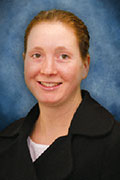
Aileen Baldwin
PhD, MPH, Assistant Laboratory Director for Research, United States Drug Testing Laboratories, Inc., Des Plaines, IL, USA
Prevalence Rates of Prenatal Alcohol Exposure from Detection of Phosphatidylethanol in Dried Blood Spots
Dr. Baldwin’s FASD research experience is focused on the use of biological markers of prenatal alcohol exposure. Using newborn phosphatidylethanol (PEth) screening as an objective measurement of prenatal alcohol exposure, she has recently conducted both retrospective and cross-sectional epidemiological studies to examine the prevalence of prenatal alcohol exposure in diverse populations. She is currently a PI on an international U01 multi-site collaborative study to examine the prevalence of PEth in a maternal/newborn cohort in Montevideo, Uruguay.

Paul Gard
PhD, FBPhC, Professor, Experimental Therapeutics, University of Brighton, Brighton, East Sussex, UK
Serun Aminopeptidase Activity as a Potential Persistent marker of Prenatal Alcohol Exposure
Professor Paul Gard is a pharmacologist with a 20-year background of researching the brain renin-angiotensin system (RAS) in disorders of mood and cognition in humans and animal models. Since 2010 he has been studying the effects of prenatal alcohol exposure on this neuropeptide system in an animal model in order to explore similarities between FASD and dementia. Emerging results indicate similar long-lasting changes in the brain RAS suggesting some potential pharmacological novel interventions.

Nina Kaminen-Ahola
PhD, Adjunct Professor, Department of Medical Genetics, Medicum, Helsinki, Finland
Epigenetics of Fetal Alcohol Spectrum Disorders (epiFASD) Project: Gestational Alcohol Exposure Alters Genes Regulation in Human Placenta
Nina Kaminen-Ahola, Adjunct Professor in Epigenetics, is a group leader of Environmental Epigenetics laboratory. Her aim is to understand the mechanisms by which environmental factors affect the gene expression in embryonic development, and the role of epigenome in it. The two environmental factors in her current studies are rather different: gestational alcohol exposure and assisted reproductive technology therapies. To get a better understanding of the effects of these factors she is using both mouse models and human samples.

Elodie Portales-Casamar
PhD, Clinical Research Informatics Lead, BC Children’s Hospital Research Institute; Clinical Assistant Professor, Department of Pediatrics, University of British Columbia, Vancouver, BC, Canada
DNA Methylation Signature of Human Fetal Alcohol Spectrum Disorder
Dr. Portales-Casamar has a PhD in neuroscience and post-doctoral training in bioinformatics and genomics. She is a Clinical Assistant Professor in the UBC Department of Pediatrics and the Clinical Research Informatics Lead at BC Children’s Hospital. In this role, she helps researchers access, collect, manage, integrate, and analyze data necessary for their clinical studies, with the goal to facilitate the translation of research into improved clinical practices. In her previous role as manager of the Neuroinformatics Core for NeuroDevNet, a Canadian Network of Centres of Excellence in brain development, she implemented a national framework for standardized data collection, extraction and analysis for researchers across Canada. Her research interests lie at the interface between biology and bioinformatics, with a specific interest in understanding how the brain functions and which factors might alter its proper development, through the application of functional genomics data analysis related to neurodevelopmental disorders.

Majid Salsali
MD, Forensic Specialist, Khatam Al Anbia Hospital, Tehran, Iran
Greetings from Iran
Majdi Salsali a Medical Doctor, and Forensic Specialist, has worked at Khatam Al Anbia Hospital for more than 15 years. He got his MD and speciality from Tehran University of Medical Sciences, Tehran, Iran about 18 years ago. He has plenty of managerial experiences and different certificates. He has a clinical background as well as academic background in the field of medicine, medical emergency, forensic, and having research in the field of social issues especially addiction, and abusing alcohol.

George Koob
Ph.D, Director, National Institute on Alcohol Abuse and Alcoholism, National Institutes of Health, Bethesda, MD, USA
The Neuroscience of Addiction: Is it a Choice?
Dr. George F. Koob, an internationally-recognized expert on alcohol and stress, and the neurobiology of alcohol and drug addiction, has been Director of the National Institute on Alcohol Abuse and Alcoholism (NIAAA) since 2014. As NIAAA Director, Dr. Koob oversees a wide range of alcohol-related research, including genetics, neuroscience, epidemiology, prevention, and treatment.
Dr. Koob received his Ph.D. in Behavioral Physiology from Johns Hopkins University in 1972. He spent most of his career at the Scripps Research Institute, where he served as the Director of the Alcohol Research Center, and as Professor and Chair of the Scripps’ Committee on the Neurobiology of Addictive Disorders. Early in his career, he served as a researcher in the Department of Neurophysiology at the Walter Reed Army Institute of Research and in the Arthur Vining Davis Center for Behavioral Neurobiology at the Salk Institute for Biological Studies. He was a post-doctoral fellow in the Department of Experimental Psychology and MRC Neuropharmacology Unit at the University of Cambridge. (see more)
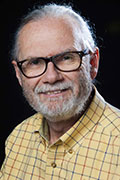
Peter Choate
Ph.D, Assistant Professor, Social Work, Mount Royal University, Calgary, AB, Canada
Evolutionary Origins of Stigma and the Intersectionality of FASD
Dr. Choate has assessed parents for the child protection in Alberta. Including parents with FASD and related disabilities. He has served as an expert witness in over 150 cases in Alberta. His experience has included working with FASD parents on a therapeutic basis including addressing addiction, mental health and criminogenic behaviors. He is the author of: Choate, P. (2013). Parents with Fetal Alcohol Spectrum Disorder in the child protection system: Issues for parenting capacity assessments. First Peoples Child and Family Review Journal, 8 (1), 81-92. And co-authored – Badry, D.E., & Choate, P.W. (2015). Fetal Alcohol Spectrum Disorder: A Disability in Need of Social Work Education, Knowledge and Practice. Journal Social Work & Social Sciences Review, 17(3), 20-32

Patrick Corrigan
Psy.D. Distinguished Professor of Psychology, Lewis College of Human Sciences, Illinois Institute of Technology, Chicago, IL
What the Science has to Say about Changing Stigma
Patrick Corrigan is Distinguished Professor of Psychology at the Illinois Institute of Technology. Prior to that, he was Professor of Psychiatry at the University of Chicago where he directed its Center on Psychiatric Rehabilitation. His research examines psychiatric disability and the impact of stigma on recovery and rehabilitation. Currently, he is principal investigator of the National Consortium for Stigma and Empowerment (NCSE); funded by the National Institute of Mental Health, NCSE is a collaboration of investigators and advocates from more than a dozen institutions. He is principal investigator on grants from the National Institute on Minority Health and Health Disparities as well as the Patient Centered Outcomes Research Institute on integrated care primary and behavioral health care. He has written more than 300 peer-reviewed articles, is editor emeritus of the American Journal of Psychiatric Rehabilitation, and editor of a new journal published by the American Psychological Association, Stigma and Health. Corrigan has authored or edited fifteen books, most recently, The Stigma of Disease and Disability.

Kathleen T. Mitchell
MHS, LCADC, Vice President and International Spokesperson, National Organization on Fetal Alcohol Syndrome (NOFAS), Founder, Circle of Hope, A Mentor Network for Birth Mothers, Washington, DC, USA
How Social Media Anonymity and the Words We Use Sustain Stigma
Kathleen Mitchell is currently the Vice President and International Spokesperson for the National Organization on Fetal Alcohol Syndrome. She has served on many expert FASD panels including the World Health Organization (WHO) and the U.S. National Task Force on FAS. She is passionate about supporting and empowering women and founded the NOFAS Circle of Hope and the NOFAS Stamp out Stigma Campaign. She served as an expert to create an episode about FASD for NBC’s Law and Order; Special Victims Unit. Her story has been featured by the media and is documented to have reached over 9 million readers.

Emily R. Fisher
MSc, MD Candidate, Sackler School of Medicine, Tel Aviv University, Tel Aviv, Israel
Country Highlight – Israel
I began my FASD experience in Vancouver while shadowing Dr. Christine Loock in her developmental pediatrics practice in the city’s lower east side. Shortly after, I connected with Dr. Koren in Israel where I observed his FASD clinic. I became aware of the prevalence of FASD in adopted children in Israel, and that there must be under-diagnosis of this condition. Since then, I have been working on this current project.

Dlzar Anwer
MSN-RN, Nurse Educator, Hawler Medical University-College of Nursing, Erbil, Iraq
Country Highlight – Iraq
I was born in Erbil-Kurdistan Region of Iraq. I am currently working as a nurse educator at Hawler Medical University. I earned Master of Science in Nursing at Valparaiso University-Indiana-USA in 2015. I got Registered Nurse Certificate in the DC Board of Nursing in 2016

Carmen L. Enache
MD, PhD, Consultant in obstetrics – gynecology, Clinical Emergency Hospital, Bucharest, Romania
Country Highlight – Romania